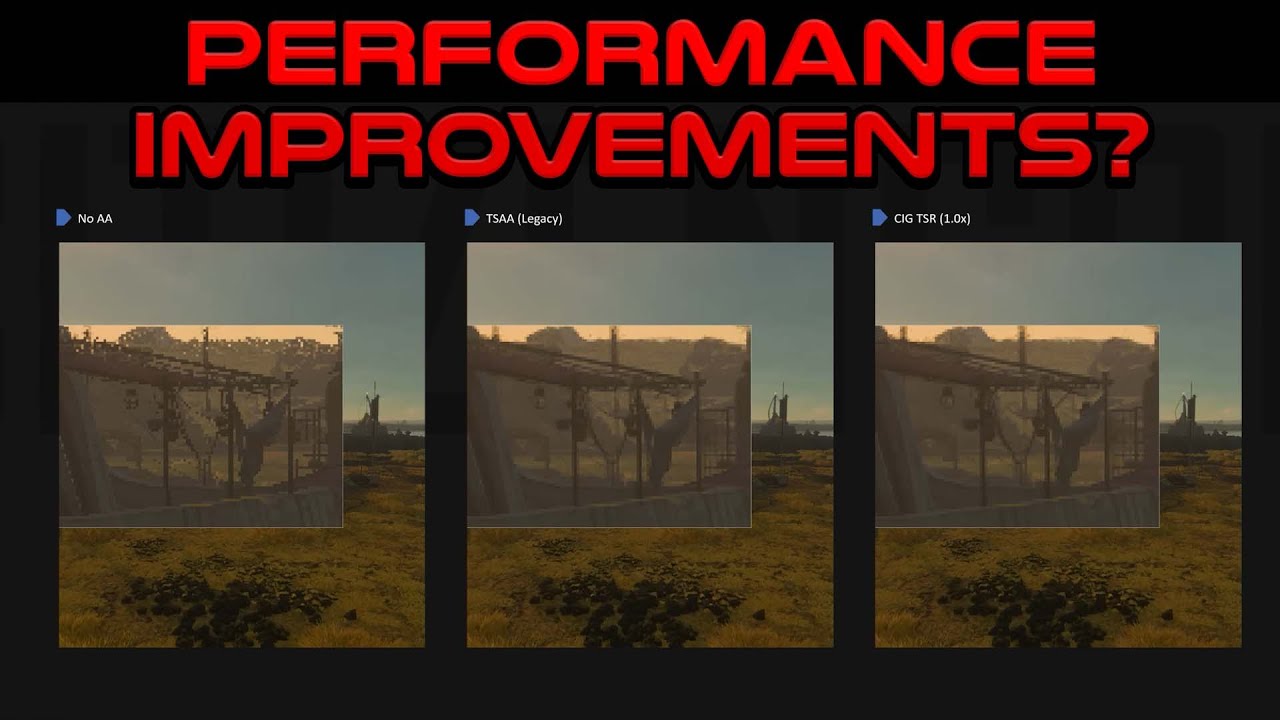Star Citizen is set to receive several performance improvements in 2024, including the introduction of Vulcan as the graphics API, the integration of upscaling technologies like DLSS and FSR, and the implementation of server meshing. Additionally, players can expect significant performance gains from upgrading to new hardware components such as the AMD 8,000 series CPUs and Intel’s 15th gen CPUs.
In 2024, Star Citizen is expected to see several performance improvements. The first major improvement is the introduction of Vulcan, which will replace dx11 as the graphics API. While Vulcan has the potential to enhance performance, the extent of its impact on Star Citizen remains uncertain. However, it is expected to provide more graphics options for players to customize their experience. Vulcan also opens the door to technologies like ray tracing, which may decrease performance initially.
Another performance improvement coming to Star Citizen is the integration of inbuilt DLSS (Deep Learning Super Sampling), FSR (FidelityFX Super Resolution), and Star Ci’s own upscaling technology. These technologies upscale lower-resolution scenes to higher resolutions while maintaining good performance. This is particularly beneficial for players with mid-range graphics cards who want to play at higher resolutions like 4K.
Server meshing is a significant technology aimed at improving server-side performance. Currently, the game struggles with low server FPS, affecting AI and other server-dependent elements. While the first implementation of server meshing might not immediately address this issue, it is hoped that future iterations will lead to more responsive AI and improved server performance.
The most impactful performance improvement for players in 2024 will likely come from new hardware components. Nvidia is releasing super GPUs, which offer slight performance boosts compared to the previous generation. However, the real excitement lies in the upcoming AMD 8,000 series CPUs, expected to be compatible with existing motherboards. Upgrading to these CPUs could provide significant performance gains for Star Citizen. Additionally, Intel is also expected to release their 15th gen CPUs, offering potential performance improvements and a new motherboard platform.
Overall, 2024 holds promise for performance improvements in Star Citizen. Vulcan, DLSS, FSR, and server meshing are expected to enhance the gaming experience. However, the most significant gains may come from upgrading hardware components, with the AMD 8,000 series CPUs and Intel’s 15th gen CPUs offering potential performance boosts for players seeking optimal performance in Star Citizen.
salt-e-mike reacts:
In a video discussing performance improvements coming to Star Citizen in 2024, the speaker highlights four key areas of focus: the introduction of Vulcan graphics API, in-game upscaling technologies, server meshing, and new components. While there are expectations for performance improvements, the speaker expresses skepticism and uncertainty about the effectiveness of these improvements in addressing the game’s performance issues, as well as the potential financial implications for players seeking optimal performance.
In a video discussing performance improvements coming to Star Citizen in 2024, the speaker highlights four key areas of focus. The first improvement is the introduction of Vulcan, a graphics API that is expected to replace dx11. While Vulcan has the potential to enhance performance, the speaker expresses skepticism about it making a significant difference in Star Citizen’s overall performance. However, the lower-level API may allow for more tweaking and optimization by developers.
The second improvement is the implementation of in-game upscaling technologies such as dlss, FSR, and Star Citizen’s own upscaling technology. These technologies upscale lower resolution scenes to higher resolutions, potentially improving performance for players with mid-range GPUs. However, the speaker notes that these technologies primarily benefit players who are GPU-bound rather than CPU-bound, which is a common issue in Star Citizen.
The third improvement focuses on server meshing, a technology aimed at improving server-side performance. Currently, server FPS is low, impacting the performance of AI and other aspects of the game that rely on server updates. While the speaker is unsure if the initial implementation of server meshing will significantly improve server-side performance, they express hope for future dynamic server missions and increased server capacity.
The fourth improvement revolves around new components, including upcoming GPUs and CPUs. The speaker mentions that Nvidia will release super GPUs, which are a refresh of the existing 4000 series. While GPU improvements may not have a significant impact on Star Citizen’s performance, the introduction of AMD’s 8000 series CPUs and potentially Intel’s 15th gen CPUs could offer notable performance boosts. However, upgrading to these new components may come at a high cost.
Overall, while there are expectations for performance improvements in Star Citizen in 2024, the speaker expresses some disappointment and uncertainty. They question the effectiveness of certain improvements, such as Vulcan and server meshing, in addressing the game’s performance issues. Additionally, they emphasize the importance of upgrading hardware for better performance but acknowledge the potential financial implications for players seeking optimal performance in the game.

